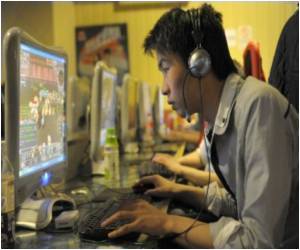The Thai virtual hero of a new mobile game called Flood Fighter dodges electrocution, drowning and even crocodiles

In an effort to prevent further deaths, the UN Educational, Scientific and Cultural Organization (UNESCO) hatched the idea of a free educationuttah mobile game app to spread the word.
"In Thailand everybody has a mobile phone, so why not convey our message through an application?" said Ichiro Miyazawa, who oversaw development of "Sai Fah: The Flood Fighter".
The free download for smartphones and tablet computers has proved a hit in a country which in 2012 had almost 130 mobile telephone subscriptions per 100 inhabitants, according to the International Telecommunication Union.
Just a few weeks after its launch in January, the game topped the charts for educational apps in Thailand, with more than 22,000 downloads.
The concept is simple: the house of lead character Sai Fah, whose name means "lightning", has flooded.
Advertisement
- Avoiding snakes, crocodiles -
Advertisement
Ayutthaya province, where the game is set, was particularly badly affected by the 2011 floods.
Homes, temples and car factories were underwater for weeks.
In the district of Ban Praek, where UNESCO visited to promote the game, memories of the disaster are still raw.
"The water came up to my head," said Nittaya Soponpit, the director of a local community education centre.
She believes the game will help children to be ready for any repeat.
"They will know how to prevent, how to prepare, how to handle floods".
Some of the game's lessons appear to have already been learnt.
Next time, "I will prepare drinking water," 17-year-old student Kitkanok Klungnumkoo said after trying out the game at a demonstration by UNESCO.
Pornnamphet Sainet, 10, added: "I will follow the advice of the game by cutting the electrical circuit".
"I was scared the water would not decrease," she said. "I still don't know how to swim."
- Asia next target -
"Sai Fah" is not meant to be a substitute for swimming lessons or life jackets, in a country where most children cannot swim.
But its message is simple: "Just stay away from the water as much as possible," said Miyazawa.
In the game, the small boy wearing a red umbrella hat must use a stick to test the ground in front of him and avoid falling into a hole or being swept away by floodwaters.
After its success in Thailand, a recently launched English-language version of the game aims to spread the message in other Asian countries affected by floods, such as Bangladesh, Indonesia, Myanmar and the Philippines. At least 4,000 downloads were recorded in the initial weeks.
Those countries are drenched by annual monsoon rains that regularly cause floods, with rapid urbanisation, deforestation and poorly designed infrastructure aggravating the problem.
While the new version is not in their mother tongue, children who play video games are usually capable of understanding instructions in simple English, according to Nathalie Sajda, project manager at Opendream which developed the game for UNESCO.
And while some cultural and environmental references might be specific to Thailand, "there are some lessons that are universal," she added.
"They might not know the temples of Ayutthaya, but at least the design is very cute. It's playful and fun, and that is the most important -- that people enjoy playing."
The biggest challenge for developing a video game is how to win people's attention, Sajda said.
"Children these days have very high expectations of games."
While the game developer has previous experience on similar projects, such as a sex education game, for UNESCO it was uncharted territory.
"There is a big potential in gamification," said Miyazawa.
"Why not create a game which can promote peace, or about gender violence? We can do a lot through mobile phones and applications."
Source-AFP









